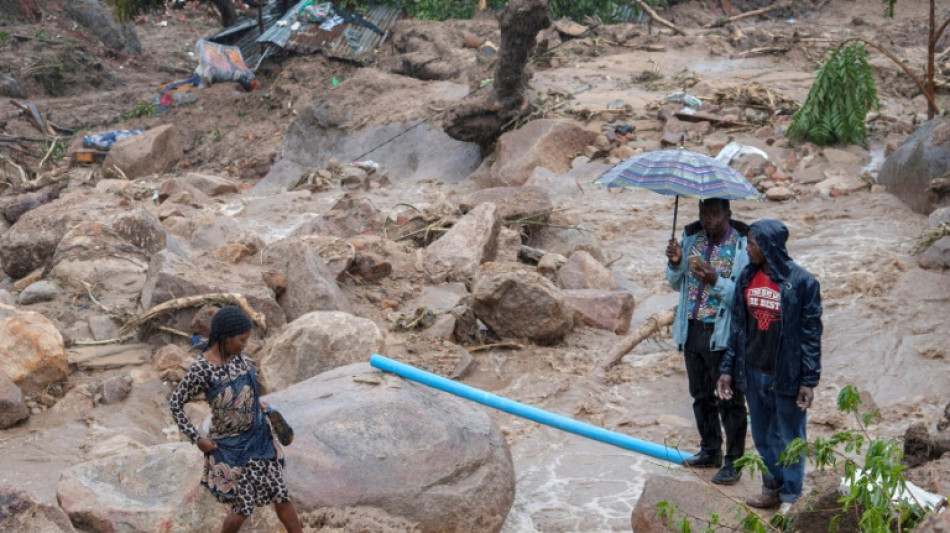
No beds, little food await Malawi Cyclone survivors

Wet clothes hang from the windows of a school in Kapeni, a district of Malawi's commercial city of Blantyre, where hundreds of people have sought shelter from deadly Cyclone Freddy.
Packing powerful winds and rain, the cyclone's return triggered floods and mudslides that washed away homes and buried their inhabitants
Mayeso Chinthenga, 14, said he was out fetching for firewood when he and other boys "saw rocks rolling down the mountain" and ran for dear life.
"Some of our neighbours died on the spot", he said. He and his family escaped only with their lives.
"Our house was destroyed. We lost everything," said Chinthenga. "Some of our neighbours died on the spot".
The family-of-five came to Kapeni Demonstration School on Monday after the premises were opened to accommodate some of the at least 19,000 people that authorities say have been displaced by the storm.
"A lot of people arrived here seeking shelter, they said they were running away from the mudslide," said Florence Chiwale, a teacher at the school.
"We decided to open the classrooms for them."
- Nearly 200 dead -
Almost 200 people have died in Malawi since Freddy pummelled through southern Africa at the weekend for the second time within a few weeks.
Relief workers expect the tally to rise.
About 1,000 survivors are currently living in this makeshift evacuation centre near the hard-hit southern city of Blantyre.
Most are women and children. They sleep on concrete floors, with no mattresses.
Students' desks have been placed against classroom walls to make space for them.
"The classrooms have no lights, we are using solar lamps," said local aid worker Rose Longer.
Outside everything is damp.
Aid is trickling in, but not in large quantities. Most has been provided by well-wishers, said Longer.
"We have distributed rice and beans and drinks that have been donated."
Three women volunteered to prepare meals. They were cooking traditional cornmeal porridge in the school kitchen.
"This is the first food that I have received since I arrived," said Chinthenga, holding a bag of freeze-dried rice with beans and meat.
Government declared a "state of disaster" in the affected regions to allow it pull in emergency resources and respond to the crisis while appealing for local and international aid.
After brewing off Australia in early February, Freddy crossed the Indian Ocean and made landfall on southeastern Africa in late February, before returning at the weekend to deliver a second harder blow.
Cyclone Freddy, which reached landlocked Malawi early Monday morning after sweeping through Mozambique, last week unofficially broke the World Meteorological Organization's benchmark as the longest-lasting tropical cyclone on record.
O.Merendino--PV
